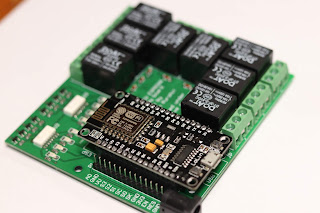Getting PCBs Made in India for a very competitive price
It was 2017 when I first designed a PCB and wanted to make a prototype. I was searching for many manufacturers but none was there who will offer prototyping prices as cheaper as there are companies in China like JLCPCB, PCBWAY etc. With no option left, I had to order from JLCPCB and I am ordering from them for last three years for all of my projects. Their quality is really good, but each time you place order, back of your mind you know you are not supporting your country's manufacturing ecosystem.
How to overcome this?
I continued the search for Any competitive price alternative in India, till June 2020, there was really none. I know this might sound harsh to some of you but yes this was the fact. I had asked for quotations from as many as 15+ companies, but it was not beating what the Chinese companies are giving (for JLCPCB it was $2 for5 PCBs, initially 10 PCBs). Then there is only economical option of India post shipping. So overall price will go for around 10USD+ customs charges. so per PCB you get approximately for Rs. 100. For a hobbyist this is undoubtedly the cheapest option to get from China.
I had ordered few PCBs from lioncircuits when they just came into light in 2018 I think. Unfortunately, there were some issues with the order, but as I escalated the issue with them, they immediately gave a replacement without any extra cost.
Since that time there was some hope with lioncircuits. The hope turned into reality in June 2020, when I got a mail from them saying they have a new plan Make in India (MII), where you will get 10 PCBs for USD 15. Since I had stopped ordering PCBs from china and was waiting for some orders to place, these guys came to light again.
I placed the order for my first PCB on lioncircuits's MII plan on July 13th and on 6th August I received the parcel. Opened it and took few photos. The boards are not populated. Haven't sourced the components yet. All photos are captured with Canon EOS200D and EF 50mm STM (sometimes with/without Raynox DCR 250) and in camera flash.
But from first few inspections here are the conclusions.
This is how I received them. It was in a box though, a stack of 10 PCBs. I didn't make any unboxing video, but trust me it was very well packed with a Styrofoam inside. (It could have been avoided though for environmental factors)
All the tracks are 10 mil (0.254mm) and you can see they look really good. Well isolated from ground plane. Spacing between the tracks was 7 mil. This is TQFP-32 package.
The Via diameter is 0.35mm, although it may look like the via is almost touching the border, but It was mistake in design which I made. I put vias 0.3mm, but the minimum which they need is 0.35mm. Lioncircuits team corrected it after DFM check.
Other package sizes including SMD 0805, 0603 and SOT-23 are well printed. The silkscreen layer is shifted by around 400micron but that is good enough.
The silkscreen layer is very clear and there is no overlap due to small size. All silkscreen is printed with 1mm height and 7 mil thickness.
One more view of the component side.
This is bottom layer. This is 2 layer PCB. You can see the green solder mask layer is very uniform throughout.
So what next?
Yes, I will continue to order from Lioncircuits since they have nice competitive pricing for prototype PCBs. Keep it up Lion Circuits.
After opening the box, there was a note written saying if you write or make youtube video Lioncircuit is going to give me discount coupon for next order. But trust me, this blog is not a result of greed to get the coupon. It is very satisfying to see the boost in Indian manufacturing Ecosystem with such small but valuable steps. I am just becoming Vocal for Local.
P.S. I will post about the board performance and the FR-4 quality after I start soldering.
For more DIY stuff, stay tuned on my blog and the YouTube channel









Comments
Post a Comment